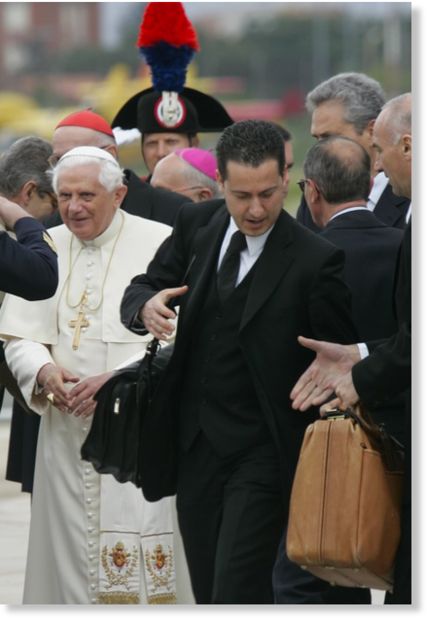
© The Economic Collapse Blog
Something really strange appears to be happening. All over the globe, governments and big banks are acting as if they are anticipating an imminent financial collapse. Unfortunately, we are not privy to the quiet conversations that are taking place in corporate boardrooms and in the halls of power in places such as Washington D.C. and London, so all we can do is try to make sense of all the clues that are all around us. Of course it is completely possible to misinterpret these clues, but sticking our heads in the sand is not going to do any good either. Last week, it was revealed that the U.S. government has been secretly directing five of the biggest banks in America "
to develop plans for staving off collapse" for the last two years.
By itself, that wouldn't be that big of a deal. But when you add that piece to the dozens of other clues of imminent financial collapse, a very troubling picture begins to emerge. Over the past 12 months, hundreds of banking executives
have been resigning, corporate insiders have been selling off
enormous amounts of stock, and I have been personally told that a significant number of Wall Street bankers have been shopping for "prepper properties" in rural communities this summer.
Meanwhile, there have been reports that the U.S. government has been stockpiling
food and
ammunition, and Barack Obama has been signing
a whole bunch of executive orders that would potentially be implemented in the event of a major meltdown of society. So what does all of this mean? It could mean something or it could mean nothing. What we do know is that a financial collapse is coming at some point. Over the past 40 years, the total amount of all debt in the United States has grown from about 2 trillion dollars to
nearly 55 trillion dollars. That is a recipe for financial armageddon, and it is inevitable that this gigantic bubble of debt is going to burst at some point.
In normal times, the U.S. government does not tell major banks to "develop plans for staving off collapse".
But according to a recent
Reuters article, that is apparently exactly what has been happening....
U.S. regulators directed five of the country's biggest banks, including Bank of America Corp and Goldman Sachs Group Inc, to develop plans for staving off collapse if they faced serious problems, emphasizing that the banks could not count on government help.
The two-year-old program, which has been largely secret until now, is in addition to the "living wills" the banks crafted to help regulators dismantle them if they actually do fail. It shows how hard regulators are working to ensure that banks have plans for worst-case scenarios and can act rationally in times of distress.
Does it seem odd to anyone else that only five really big banks got such a warning?
And why keep it secret from the American public?
Does the federal government actually expect such a collapse to happen?









Comment: 1.2 billion-euro spent on security to arrest one Parkinson's sufferer for 'not smiling'.